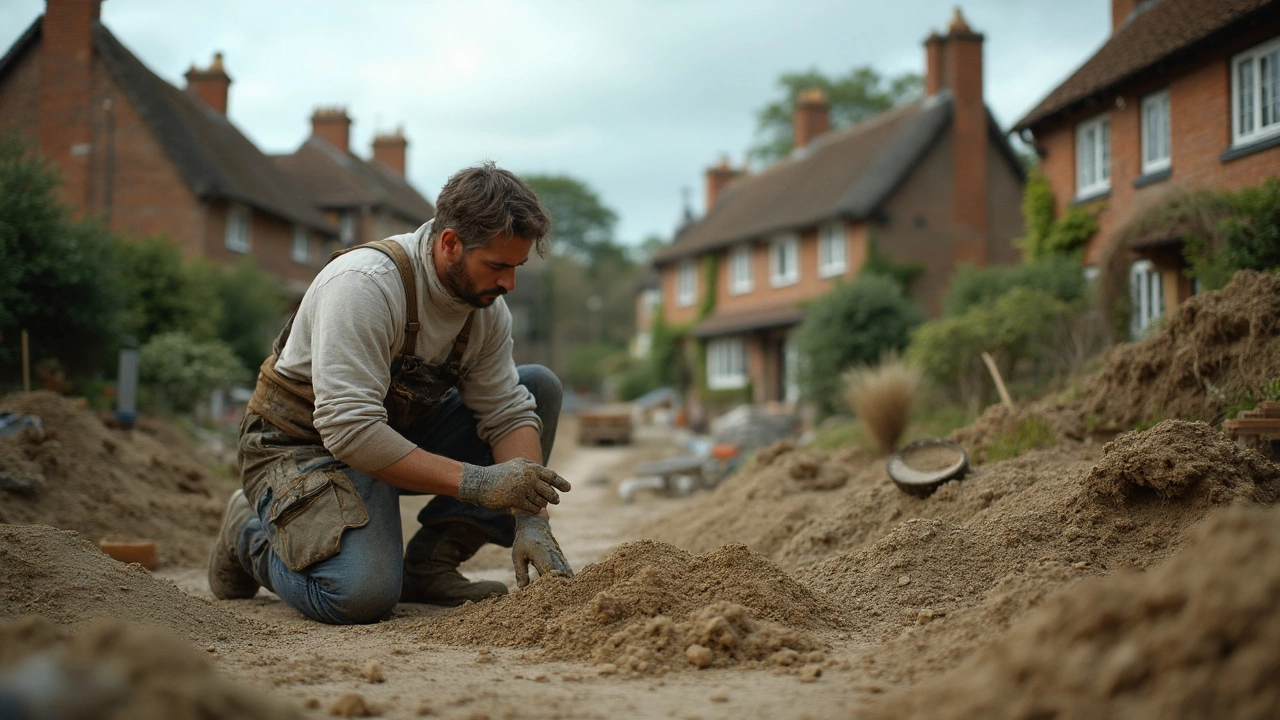When it comes to repairing a foundation, choosing the right cement is crucial. Different types of cement can address various foundation issues, offering solutions suited to specific needs. Weather conditions, existing damage, and the type of foundation all play a role in determining the best cement for the job. Make informed choices by learning about the types and uses of different cements, ensuring a safe and stable foundation.
Best Cement: What to Look For and Which Brands Perform
Choosing the right cement can feel like a gamble, but it doesn’t have to be. Whether you’re pouring a slab, laying brick, or doing a quick repair, the cement you pick determines how strong and long‑lasting the work will be. Below is a straight‑forward look at the most common cement types, the factors that matter most, and a few top‑rated products that deliver solid results.
Common Cement Types and When to Use Them
Portland cement is the workhorse of most construction jobs. It’s the gray powder you see in bagged mixes, and it’s perfect for general‑purpose concrete, foundations, and driveways. Look for a “Type I” label if you need an all‑round performer.
White cement has the same chemistry as Portland but is made without iron and manganese, giving it a bright colour. It’s popular for architectural finishes, decorative concrete, and tiles where appearance matters more than raw strength.
Rapid‑setting cement hardens in a few hours instead of the usual 24‑hour cure. Use it for repair jobs, anchoring posts, or any situation where you need the surface usable quickly.
High‑early‑strength (HES) cement gives extra strength in the first few days. It’s great for structural elements that need to support loads early, like floor slabs in commercial buildings.
Blended cement mixes Portland cement with supplementary materials like fly ash, slag, or silica fume. These blends improve durability, reduce cracking, and can be more eco‑friendly. They’re a solid choice for large pours where long‑term performance is key.
Key Factors to Evaluate Before Buying
1. Strength rating – Check the compressive strength (usually 20, 30, or 40 MPa). Higher numbers mean the cement can handle bigger loads.
2. Setting time – Fast‑setting cements are handy for quick fixes, but slower sets give you more working time for big pours.
3. Weather suitability – If you’re working in cold conditions, look for “cold‑weather” formulas that stay workable longer. In hot climates, a “hot‑weather” mix helps avoid premature drying.
4. Environmental impact – Some brands offer low‑carbon options that use recycled by‑products. If sustainability matters to you, these can be a win‑win.
5. Cost per bag – The cheapest bag isn’t always the best value. Weigh price against strength and durability to avoid paying more in repairs later.
Now that you know what to compare, here are three cement products that consistently earn high marks from tradespeople and DIYers alike.
Top Picks for Different Projects
1. Lafarge Cemex Portland Type I – A solid all‑round cement with a 30 MPa strength rating. It’s easy to find in most UK builders’ merchants, mixes well with sand and gravel, and provides reliable results for slabs, footings, and bricklaying.
2. Ultrafast Rapid‑Set Cement – Sets in under 30 minutes and reaches 20 MPa in just a few hours. Perfect for anchoring fence posts, repairing cracked driveways, or any job where you can’t wait for a full day of curing.
3. Eco‑Blend Silica‑Fume Cement – A blended mix that includes silica‑fume to boost durability and reduce permeability. Ideal for basements, tunnels, or waterfront projects where water resistance is critical.
When you buy, store the bags in a dry place and keep them sealed. Moisture can cause the cement to harden before you use it. Also, mix only the amount you’ll need for a single batch – leftover mix can set quickly and become unusable.
In a nutshell, the best cement for your job depends on strength, setting time, climate, and budget. By matching the cement type to the specific demands of your project, you’ll avoid weak spots and costly repairs later. Grab the right bag, follow the mix ratios, and you’ll have a solid foundation for whatever you’re building.
